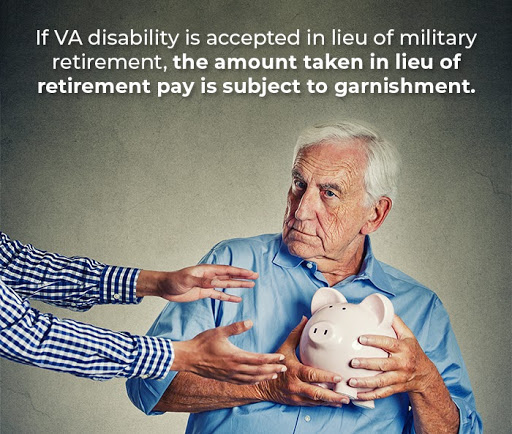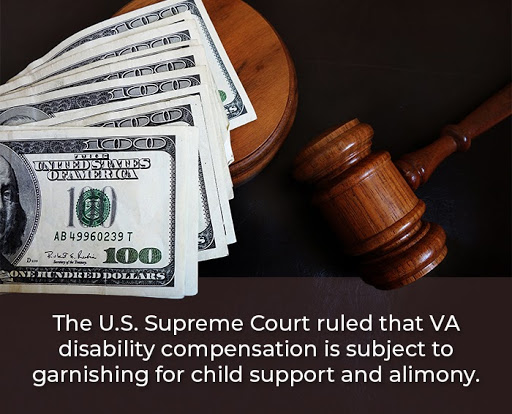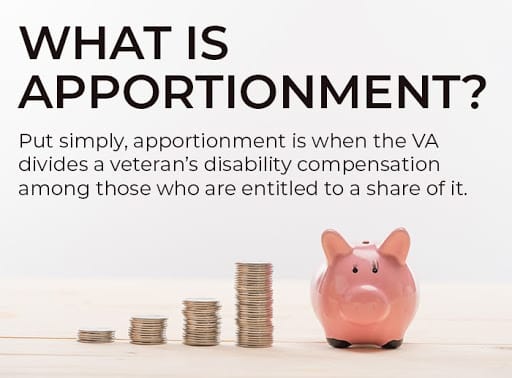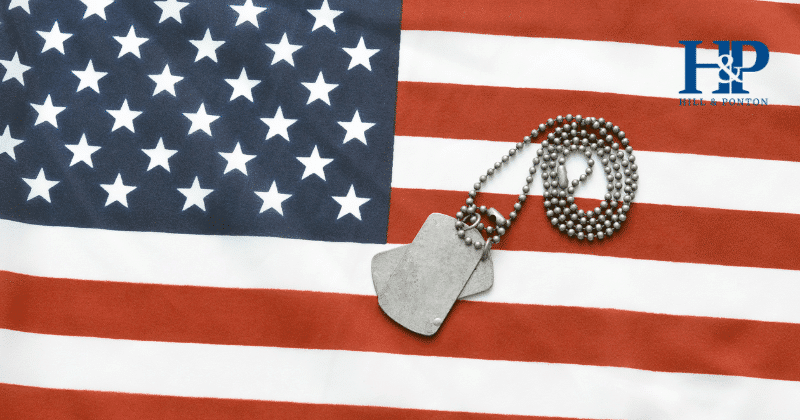When a veteran receives disability benefits through the United States Department of Veterans Affairs or via court order, the payments arrive in the form of monthly income.
But can VA benefits be subject to garnishment like other types of income?
There is a lot of confusion over whether veteran’s disability benefits can be garnished. When income is subject to garnishment, a third party can deduct a portion of this income from the recipient’s bank account or paycheck. This garnishment would cover payments such as credit and medical bills, child support and alimony, federal student loans, and past-due taxes.
VA disability benefits typically cannot be garnished for these types of payments. However, there are exceptions to the rule. Military disability benefits may be garnished if a veteran is receiving disability compensation in lieu of retirement pay. The portion that a veteran takes in lieu of military retired pay may be garnished. Veterans with child support orders or alimony obligations may also have their payments garnished by the amount of child support or alimony due.
VA Disability in Lieu of Military Retirement
If a veteran accepted VA disability compensation in lieu of military retirement benefits for their military service, then the amount taken in lieu of the retirement pay is subject to garnishment. Since military retirement pay is subject to garnishment, the federal law considers that replacement by VA disability to also be subject as well.
However, if a veteran is rated at 50% disability rating or higher and receiving full retirement and full disability, the garnishments can only come out of the military retirement pay portion.

If the VA disability compensation is the only source for the veteran’s income, credit debts, medical debts, student loans, and taxes cannot be garnished under any circumstances. So, the VA will consider whether the veteran has other sources of income, as well as whether a veteran has special needs that would require additional income.
It’s also important to note that any award a veteran receives cannot be considered for spousal maintenance in divorce proceedings and is protected. Basically, the VA will not garnish the disability compensation of a veteran. The exception is when a former spouse and dependent children apply for apportionment for support.
100% VA Disability, Alimony & Child Support Obligations
According to a U.S. Supreme Court case, Rose v. Rose, 481 U.S. 619 (1987), state courts can enforce a child financial support order against a disabled veteran even if the only funds available to the veteran are the veteran’s disability pay. This ruling determined that the VA intended disability benefits to be used to support the family when the veteran could no longer due to their service-connected disabilities. Therefore, in Rose v. Rose, the court deemed that child support payments and alimony could also be paid from VA disability compensation.

While disability compensation benefits can never be considered a marital asset or included in property division between divorcing spouses, former spouses entitled to state-ordered alimony may receive an amount based on the combination of the veteran’s income including his VA disability benefits.
Garnishment to a former spouse would be denied if:
- The garnishment was to cause undue financial hardship
- If the veteran’s former spouse or child has not filed for apportionment
- If the former spouse is living with or married to another person
- If the former spouse was found by state court to have been guilty of infidelity

What is VA Apportionment?
Apportionment is when the VA divides up the veteran’s disability compensation amount among those who are entitled to a share of it for support purposes. The former spouse must file for apportionment from the VA for themselves (if alimony is ordered) and for their dependent children. This is available because of the uniformed services former spouses’ protection act. The VA approves this filing pending a few key details.
The VA requires that the applicant and veteran submit financial statements while the spouse is applying for apportionment. The veteran’s financial statement shows that the apportionment will not cause undue hardship before it is awarded. The apportionment checks then are paid directly from the VA to the former spouse and/or guardian of the dependent children, bypassing the veteran. The veteran’s check is reduced by the amount of the apportionment.
The party receiving the apportionment must meet the above guidelines or they will be required to give up their apportionment and even pay it back if they were, for example, living with another person but still receiving an alimony apportionment check. The veteran can also file for a hardship reduction in apportionment if they are unable to meet their basic financial needs at any time.




